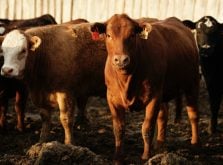Good question. While we don’t yet have an answer, the federal Competition Bureau’s recent language suggests Bunge’s continued part-ownership of G3 would be a regulatory sore spot in a merger with Viterra.
The basic background: U.S.-based Bunge, the “B” in the “ABCD” group of companies that handle the bulk of global grain trade, last June announced a cash-and-stock deal to buy Viterra, the now-international grain handler built out from the foundations of the former Prairie pools.
Bunge’s assets in Canada today are mainly in canola crushing and its minority stake in the holding company that controls the majority of G3.
Read Also

Avoid these thought traps when investing
Investing for Fun and Profit: Let’s review a list, by renowned fund manager Peter Lynch, of the most dangerous things that stock market investors can say to themselves, or to others.
MAIN STORY: What’s happening with your shares in G3?
Bunge’s CEO Greg Heckman, in a recent op-ed piece, assured that G3 and Viterra “are competitors today and G3 will be a strong competitor to a combined Bunge-Viterra after the merger.”
The Competition Bureau of Canada, in a report it submitted in April to Transport Canada’s public interest review of the proposed deal, disagrees.
The bureau says the deal, if allowed to proceed with no intervention, “is likely to harm competition in markets for grain purchasing in Western Canada, as well as for the sale of canola oil in Eastern Canada.”
Bunge, the bureau says, “could materially influence the economic behaviour” of G3, as the U.S. company “has access to G3’s confidential competitively sensitive information.”
The deal, as proposed, “will result in Bunge acquiring G3’s largest competitor, Viterra, which will increase Bunge’s incentive to use this confidential information and its ability to influence G3’s behaviour in ways that are likely to result in harm to competition in agricultural markets in Canada,” the bureau says.
Past that, the bureau also sees the deal as leading to “a substantial lessening of competition for the origination of canola” in the areas around Bunge’s crush plants at Altona, Man. and Nipawin, Sask., “as well as in the supply of canola oil to customers who can only receive (refined canola) oil by truck in Eastern Canada,” a region where Bunge would control two of three existing crush plants.
As for the companies’ stakes in port terminal capacity, though, the bureau says a Bunge/Viterra mariage “is unlikely to result in a substantial prevention or lessening of competition” because neither company is all that active in providing terminal capacity to third parties, so a deal wouldn’t likely harm third parties’ choices in sourcing export terminal space.
Transport Canada’s public interest review deadline is June 2, sometime after which the federal cabinet could approve or reject a Bunge/Viterra deal. You’ll recall that federal and provincial concerns over the “net benefit” to Canada sunk the proposed takeover of PotashCorp by BHP back in 2010.
And if a Bunge/Viterra deal gets federal approval? Well, the Competition Bureau has required consent agreements, involving the sales of elevators or other assets, for approvals of past mergers by grain, seed, ag chem and ag retail companies, such as the merger in 2007 that created Viterra in the first place.















